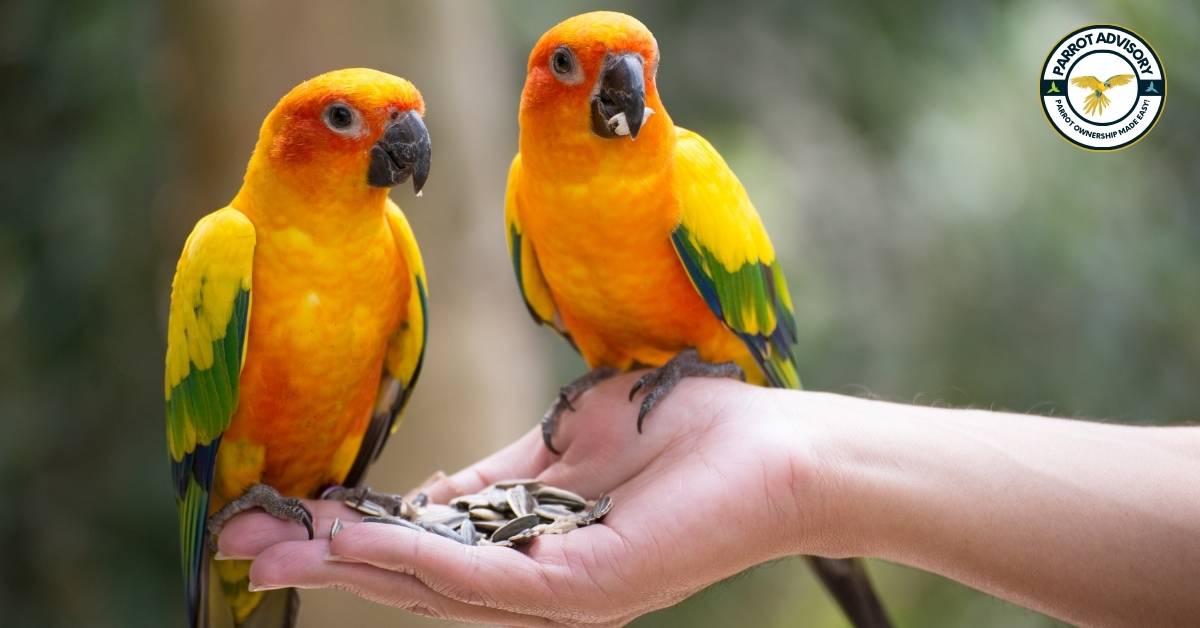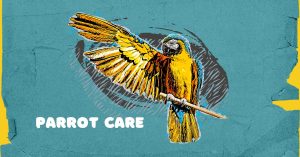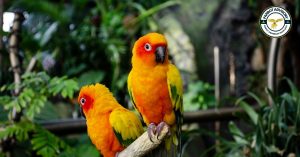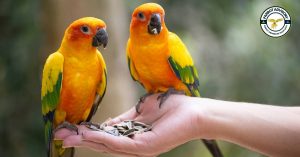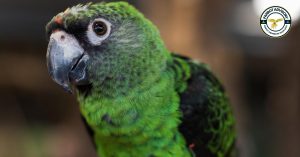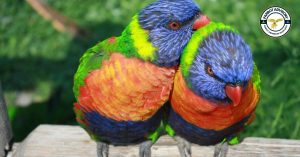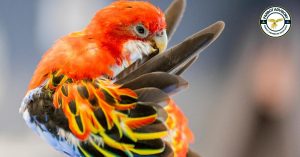Parrots are beautiful and highly intelligent animals that can make wonderful companions. However, like all pets, they require proper care and attention to ensure their health and well-being. One of the most important things you can do to keep your parrot healthy is to be able to recognize when something isn’t quite right. In this post, we’ll discuss physical and behavioral signs of good health and signs of illness in parrots.
Physical Signs of a Healthy Parrot
For a parrot to be healthy, there are some physical cues that can help you determine its overall wellness. The following are physical signs of a parrot is in good health:
Appearance of feathers:
Parrots are beautiful birds and one of the things that make them stand out is their crisp, vibrant plumage. A healthy parrot should have feathers that shine in the light. If you own a parrot, touch its feathers on occasion; they should have an even texture all over, with no bald patches or frayed ends to any of the feathers. Take note if there are visible abrasions on your pet’s wings or body; this could be an indication of questionable health or conditions and may warrant further examination from an avian veterinarian. Nurturing gleaming, glossy feathers goes a long way in keeping your parrot happy and healthy for years to come!
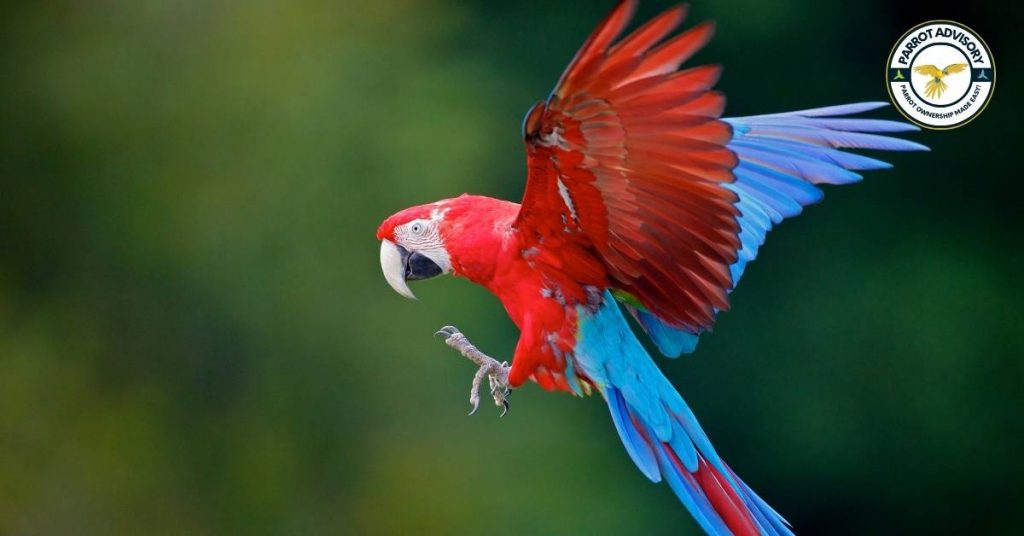
Body condition:
It’s important to ensure your parrot has a healthy body weight and shape–it plays a crucial role in the overall health of the bird. That’s why it’s essential to look for any visible ribs or hip bones. A bird that is too thin can indicate the need for an adjustment to its diet, whereas a bird that appears too heavy may be overfed with unhealthy foods. To make sure your parrot is at its optimal weight, consult your veterinarian. They will be able to help you adjust their diet so that they can maintain their full body shape. With proper nutrition, every parrot should have a well-rounded figure with no visible bones present.
Activity level:
As pet parrots are naturally energetic, they should be fluttering in their cage, interacting with you and their toys daily; however, erratic behavior changes such as a decrease in activity or an interest in food can be warning signs that something is wrong. Comparing your parrot’s normal behavior to changes in attitude or lack of enthusiasm for playtime is important for assessing their overall health. Try to take note of how frequently your parrot flies and explore every day so that you have an idea of what ‘normal’ looks like. If you’re ever concerned about their well-being, contact a vet. Health problems can differ from one parrot to another depending on its species—your veterinarian may have recommendations specific to the necessary care your pet requires.
Appetite:
Being able to maintain a steady diet is important for any pet, especially parrots. With their unique digestive tracts and dietary requirements, it’s essential they receive the proper nutrition they need to stay healthy. As a good pet parent, you should be monitoring your parrot’s interest in their food. If you find that your feathered friend is avoiding meals or being picky with what they eat, it could be a sign of an underlying health issue and it’s time to have your feathered friend checked out by the vet. A proper diet can help keep your parrot healthy and happy for many years to come!
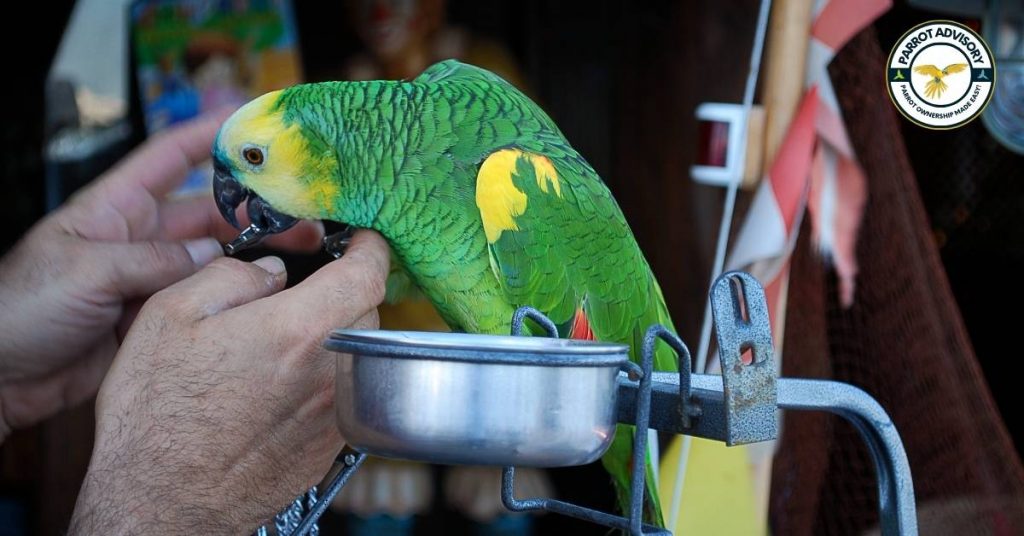
Vocalization:
Understanding what vocalization means for your parrot can help ensure that its physical and emotional needs are being met. Vocalization is a way for the parrot to communicate with its environment, from expressing an opinion on the food you’ve given it or letting you know when it feels displeased, to simply chattering away happily.
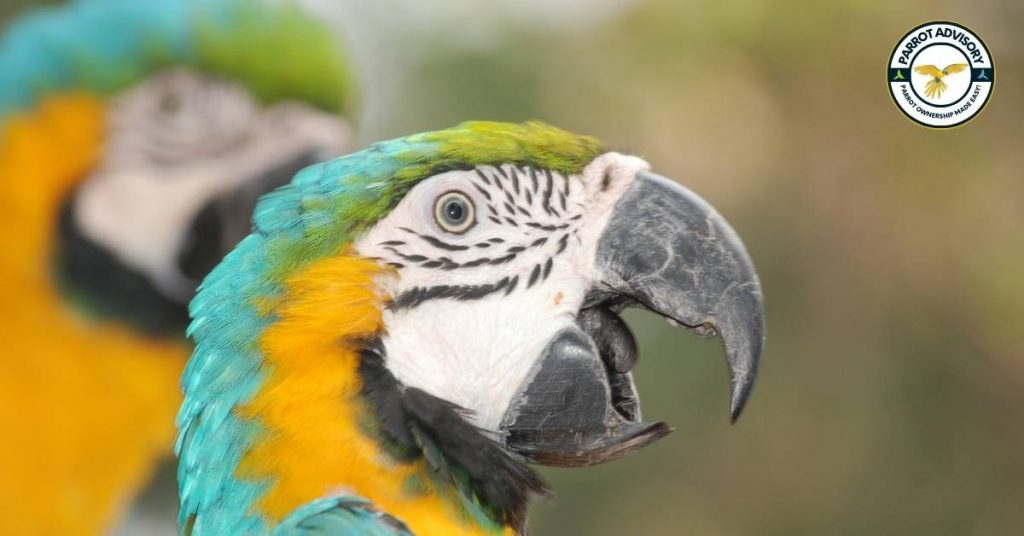
If you notice peculiarities about your parrot’s vocalization, such as silence even when there is something present that would usually draw sound from them, this could be a sign of stress or illness and should not be ignored. Knowing your parrot’s typical vocal habits will help you to more quickly identify any potential changes in their behavior, allowing you to get them the help they need as soon as possible.
Behavioral Indicators of Good Health
Parrots are naturally quite active and curious animals, so if you have one as a pet it’s important to ensure it has good health. Luckily, there are several simple behavioral indicators that can help you monitor your parrot’s health. Below we discuss each of these indicators one by one:
Eating habits:
Good health in parrots is often indicated by how much they eat. A healthy bird will have a good appetite and will happily enjoy its food. It’s important to pay attention to the amount of food your parrot eats, as well as its quality—pay special attention if you notice it eating less or not finishing its meals. Undersized portions may mean there are underlying issues that need to be addressed, so make sure you talk to your veterinarian right away if you notice any changes in your parrot’s appetite.
Social interaction:
Parrots are social animals and love interacting with their owners and other people they meet along the way. Therefore, when assessing the health of your pet, it’s important to pay attention to their level of interaction. Do they enjoy being held, petted, and played with? Are they actively seeking out social contact? A healthy parrot will be willing and eager to interact when given the chance, while a sick bird may become withdrawn or avoid human contact.
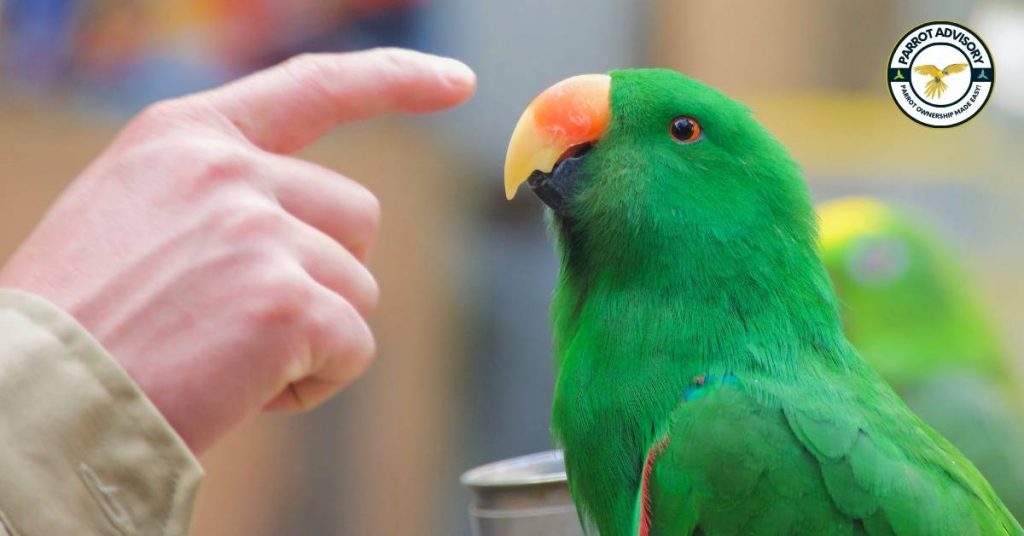
Playfulness and curiosity:
Playtime is an essential part of parrot health and wellbeing, so it’s important to keep an eye out for any changes in how your pet interacts with toys or other objects. A healthy parrot will be energetic and active during playtime, exploring its environment and curious about what’s going on around them. If you find that your feathered friend is not as interested in playing as they usually are, this could point to an underlying problem and should be checked by a professional right away. Lacking enthusiasm for playtime can indicate potential health issues that need to be addressed.
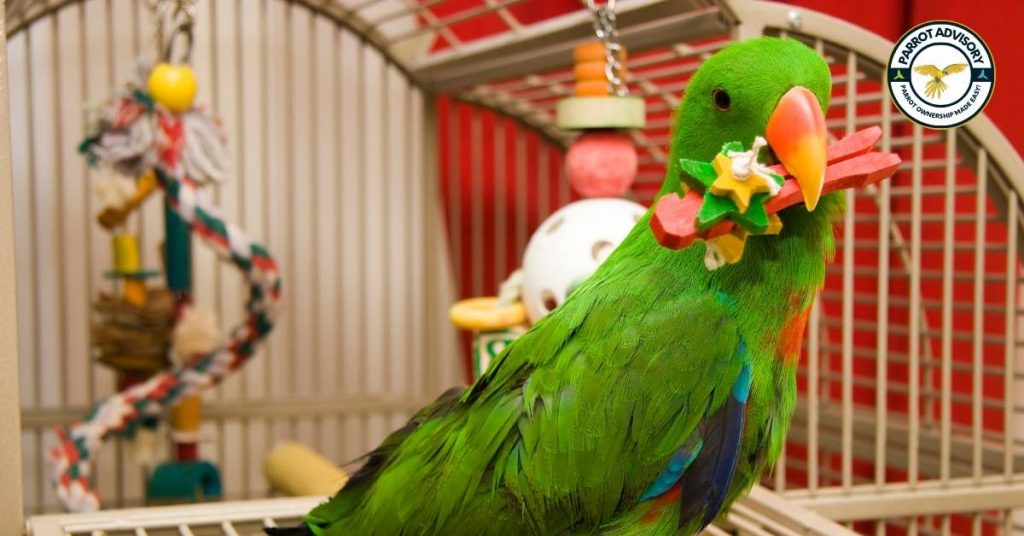
Grooming:
Parrots naturally groom themselves throughout the day, using their beaks to clean their feathers and skin. This is done to keep the feathers and skin healthy, so it’s important to ensure your parrot is grooming itself normally. Pay attention to how often your feathered friend preens, as well as any change in the way they do this. If you notice that your parrot is neglecting their grooming habits or is excessively preening, it could be a sign of stress or a health issue.
Sleeping patterns:
Just like us, parrots need sleep in order to stay healthy. Healthy birds will usually sleep for 10-12 hours a day, with some variation depending on age or activity levels. If you notice any changes in your parrot’s sleeping habits—such as sleeping more than usual or not at all during certain times of the day—it could be an indication of illness and should be looked into by a veterinarian right away.
Potty Habits:
Another important indicator of health is how often and where your pet goes to the bathroom. Healthy parrots typically have regular defecation patterns that are easy to spot if you pay attention to them. If you find yourself having to clean up after your pet more often than usual, or if they are defecating in unusual places, this could be a sign of illness and should be checked by a professional right away.
Signs of Illness in Parrots
As a pet owner, it’s important to be aware of the signs and symptoms of illness in parrots so that you can act quickly if your feathered friend does become ill. Below are some common red flags to look for:
Changes in physical appearance:
Any sudden change in your parrot’s physical appearance should be a cause for concern. Unusual feather loss, strange lumps and patches, abnormal coloring or feathers, and any change to the bird’s overall appearance could all be signs of an underlying health problem. If you spot any of these changes in your parrot, take them immediately to an avian veterinarian as soon as possible. These specialist vets are equipped to handle any medical issues that may arise with your pet bird, ensuring they get the best treatments available. Don’t ignore these changes – with swift and proper intervention, you can help return your pet back to full health again!
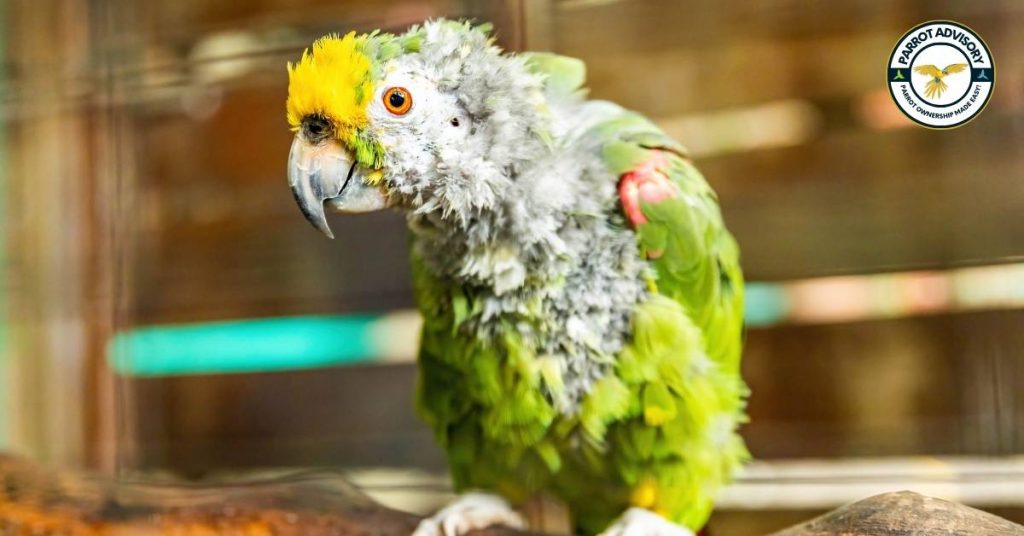
Unusual behavior:
If you own a parrot, it’s normal to expect some occasional misbehavior. After all, they are highly intelligent and curious animals. Yet if any major changes in behavior occur out of nowhere, such as sudden aggression or lethargy that persists for some time, this could be a warning sign of an underlying health issue that needs attention. It is wise to get in touch with your vet or an animal professional right away if this happens. Taking your parrot for regular check-ups can also help identify any potential problems before they become an emergency.
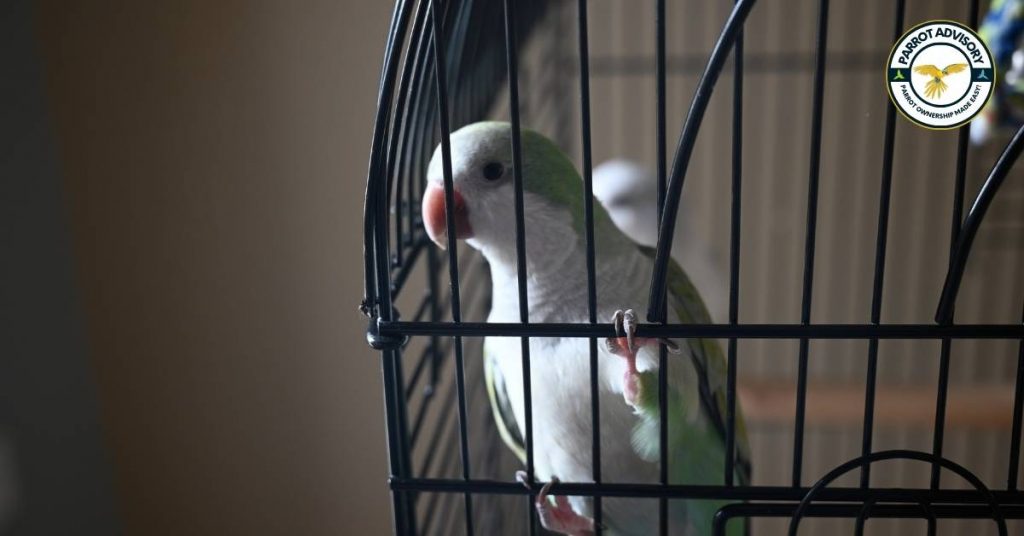
Weight loss:
Unexplained weight loss in parrots should never be overlooked – it can be the first warning sign of an underlying health issue. It’s no secret that our feathered friends are excellent at hiding their discomfort, and this can make it difficult to notice if something isn’t quite right. That’s why it’s so important for bird owners to pay close attention to any sudden or drastic changes in body weight, as promptly addressing a potential problem could save your pet from serious harm. A vet appointment should always be scheduled if you have any concerns about your bird’s health, and unexplained weight loss could warrant further testing and investigation.
Discharge from eyes, nose, or mouth:
One of the most important things to look out for when monitoring your pet’s health is any signs of discharge from their eyes, nose, or mouth. If you notice that your parrot is exhibiting any forms of discharge from these areas, it could be a sign of an illness and should be checked out by a veterinarian as soon as possible. This can help to ensure that any underlying issues are caught early and treated correctly in order to prevent any more complications from arising. Prompt veterinary attention can also be beneficial in providing relief for your feathered friend since most illnesses become more severe when left untreated for too long. While regular check-ups at the vet are important, it is even more vital to pay close attention to any unusual discharge so that you can act fast if needed.
Changes in appetite:
A healthy parrot will usually have an appetite for food and treats throughout the day. If you find yourself having to feed your pet more often than usual or if they seem uninterested in eating altogether, this could point to an underlying health issue and should be looked into immediately.
Breathing difficulties:
Breathing difficulties are serious signs of illness that require immediate veterinary attention. Look out for any changes in your parrot’s breathing patterns, such as wheezing or labored breathing, and schedule an appointment with the vet right away if you notice anything out of the ordinary.
Steps to Ensure Good Health in Parrots
Proper diet and nutrition
Parrots need a well-balanced diet to stay healthy, so it’s important to provide them with nutrient-rich food that meets their specific dietary needs. Offer a variety of fresh fruits, vegetables, nuts, seeds and whole grains as part of your parrot’s regular diet. Avoid giving your parrot processed foods, as these can be high in sugar and fat and provide little nutritional value. Additionally, make sure to always provide your parrot with clean, fresh water.
Mental stimulation
Parrots are highly intelligent birds that require mental stimulation in order to stay healthy. Provide them with a variety of toys and activities to keep them occupied, such as puzzle toys, foraging opportunities, swings and ladders. Social interaction is also important for parrots, so providing them with plenty of human contact is key to their well-being.
Enrichment and exercise
Parrots are also very active animals, so providing them with regular opportunities for enrichment and exercise is key to ensuring good health. Make sure your parrot has plenty of space to play and explore, as well as access to outdoor areas when possible. This can help keep their muscles strong and their minds stimulated. Additionally, offer your parrot bird-safe enrichment items such as bird baths, swings and perches to help keep them active.
Hygiene and sanitation
Maintaining clean and sanitary living spaces for your parrot is essential to their health. Make sure the cage and any attached perches are regularly washed with a mild soap and water solution, as well as cleaned out of food debris and droppings. Additionally, maintain good hygiene practices when handling your parrot; always wash your hands after handling your bird or touching anything in its environment. By following these steps, you can help ensure that your parrot stays healthy and happy for years to come!
Importance of regular veterinary check-ups
Parrots should receive regular check-ups from an avian vet at least once a year, although more frequent visits may be necessary depending on the individual parrot’s health status. During these appointments, your vet will inspect and assess your parrot’s general health, evaluate any existing symptoms or changes in behavior and address any potential problems before they become serious.
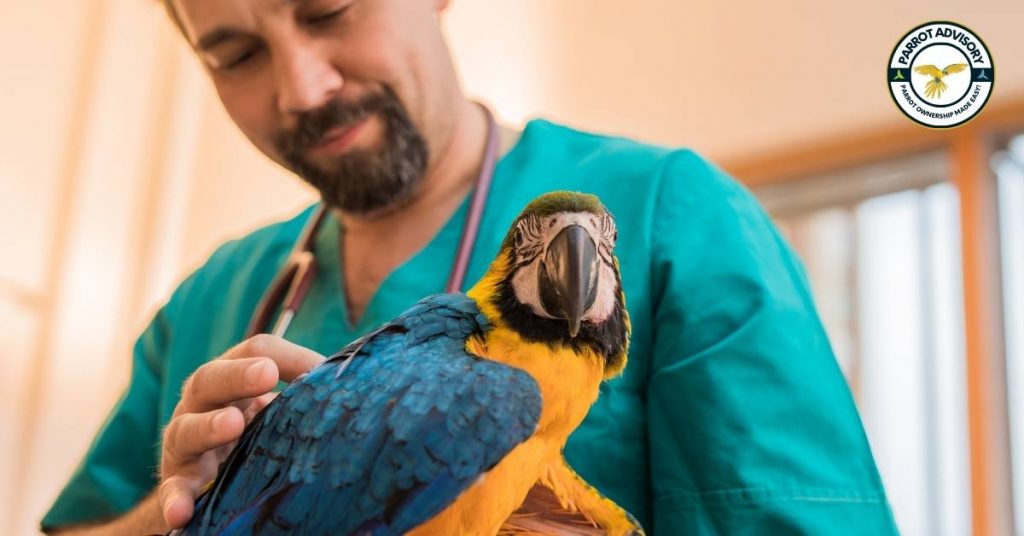
Conclusion:
To ensure your parrot is in good health, there are several key indicators you should look out for. These include a bright and alert attitude, clear eyes, smooth feathers, a healthy appetite, vibrant colors and active behavior. If you notice any of these signs missing or off balance, it may be time to take your parrot to the vet for an assessment. Taking care of a pet can be rewarding but also requires responsibility and diligence. Paying attention to your parrot’s health will help them live longer and healthier lives!

